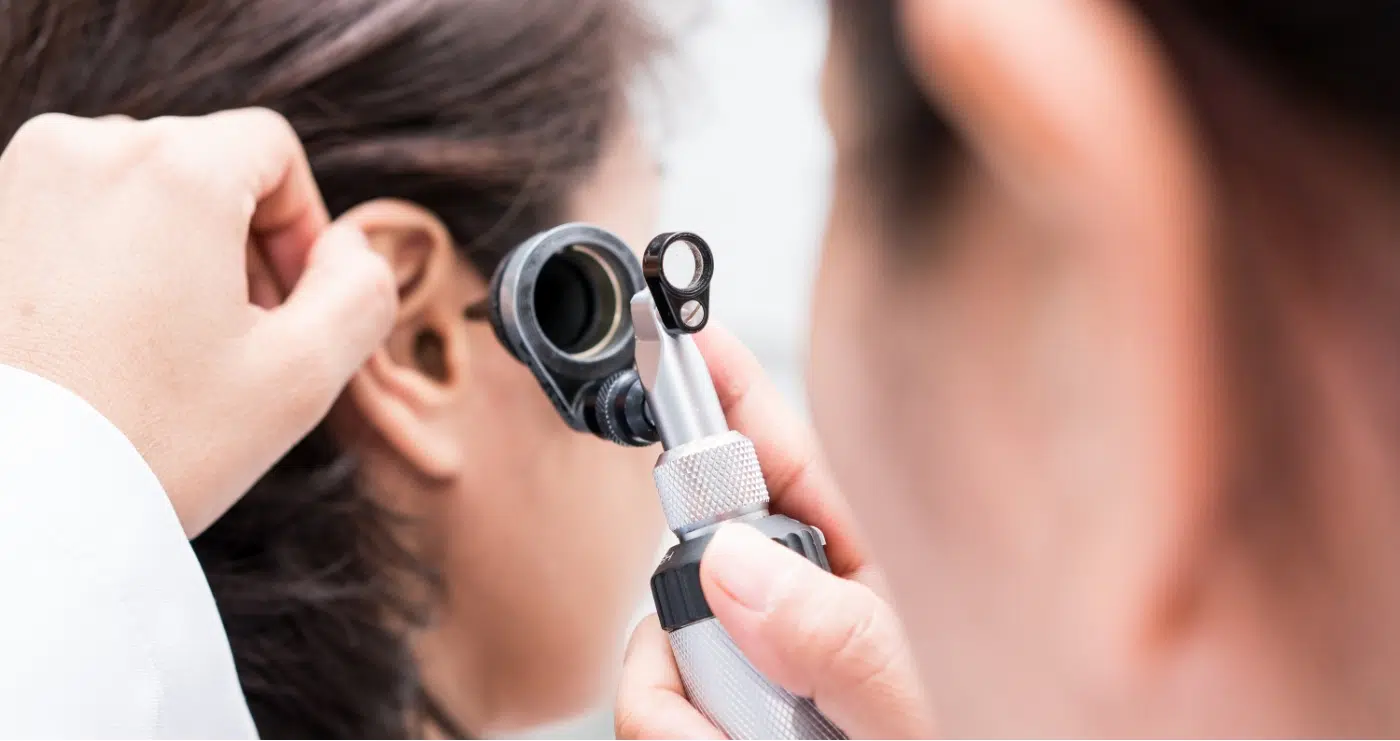VA Denied Your Hearing Loss Claim?
Contact Our Veteran-Owned Law Firm Today

Hearing loss and related disorders are by far the most common service-connected disabilities faced by American veterans today. According to the Department of Veterans Affairs’ Annual Benefits Report for fiscal year 2021, more than 4 million veterans received disability compensation for auditory disabilities, primarily hearing loss and tinnitus. This includes more than 230,000 new cases added to the rolls between October 2020 and September 2021.
The good news is that, yes, you can get VA disability for hearing loss. Millions of veterans already do. However, that doesn’t mean that the approval process is going to be easy or fair to you.
On the contrary, getting the VA disability benefits you deserve is often complicated, stressful, and frustrating for veterans and their families. Hearing loss is actually one of the hardest disabilities to get approved by the VA. Unfair denials are common, and the standards for hearing impairment used by the VA are extremely strict—meaning most vets struggle to get a disability rating for hearing loss above 10% even when their symptoms are fairly severe.
If you need help with your VA hearing loss claim, LTC Karl Truman is here for you. An Army veteran who retired after 28 years of military service, Karl understands what you’re going through. And as an experienced VA disability attorney, he knows what it takes to get difficult claims approved.


Broadly speaking, in order to get the VA to approve your hearing loss disability claim, you will need to prove two things: a current diagnosis of a qualifying condition, and a service connection linking it to your disability.
While you might already have a hearing loss diagnosis from your regular physician, the approval process for VA benefits is a bit stricter. You’ll need to get a medical opinion from a state licensed audiologist, who will perform two hearing tests on both ears (even if only one ear has a hearing impairment):
To qualify for VA benefits for hearing impairment, tinnitus, or related issues, your hearing loss must be confirmed to be service-connected. This means that, during your time in military service, you were exposed to conditions that either caused your hearing loss or made it worse. (Your hearing loss symptoms may have developed after you retired from active duty, but must still be the direct result of your military service to receive VA benefits)
Examples of a potentially qualifying service connection might include:
Unfortunately, proving a direct service connection is frequently a challenge for veterans.
For one, hearing loss is extremely common among the general population. According to a paper published in the Archives of Internal Medicine, it’s estimated that nearly 1 in 8 American over age 12 have some form of it—and over half are 65 and up. It goes without saying that most of these people never served in the military.
And two, even if your hearing loss was caused by a service-connected event or occupational specialty, you may not develop noticeable hearing problems until after retirement. This makes it even harder to establish a service connection, as your symptoms may instead be dismissed as a normal consequence of aging or blamed on events that occurred outside of your military service.
If you served in combat between 2003-2015, it’s also likely that you were issued faulty earplugs from 3M which failed to provide adequate hearing protection for military service members.
If you believe that your hearing loss was connected to these faulty earplugs, you may be entitled to file a negligence claim against 3M for medical expenses, pain and suffering, and other damages—in addition to filing your VA disability claim. Please contact our office for a free consultation if you think you may have a case.
RELATED: Faulty Military Earplugs: Dual-Ended Combat Arms Earplugs


In February 2022, the Department of Veterans Affairs proposed a sweeping set of revisions to rules governing VA disability for a variety of ear, nose, throat, and audiology conditions. These changes were made to update terminology and criteria to reflect advances in medicine and clinical practices.
Some of the proposed changes affecting hearing loss disability would include:
The most critical change here is tinnitus, which is currently the most common source of both current and new VA disability claims. Although former service members who are already receiving VA benefits will not be affected, these changes would unfortunately make it more difficult for new claimants.


Initial disability ratings for hearing loss are determined exclusively by hearing test results.
Each ear is scored independently from I (normal hearing) to XI (profound hearing loss), based on a combination of your results in the controlled speech discrimination test and pure tone test. Then, the VA uses a table to compare the results from each ear and determine the disability rating.
While it’s possible to get a 100% hearing loss VA rating, this is extremely rare and requires profound hearing loss in both ears—so much that, even with hearing aids, your hearing would still be very limited, and you’d need to read lips and/or use sign language to communicate.
Most veterans with mild-to-moderate hearing loss will receive a disability rating of either 0% or 10%. Severe hearing loss (enough that you probably couldn’t hear a vacuum cleaner on the other side of the room without hearing aids) is more likely to earn a disability rating in the 30% to 50% range. But even if one ear is functionally deaf, the best rating you can get is 10% if your good ear has normal hearing or only minimal hearing impairment.
As mentioned above, under current VA rules, veterans can get an additional 10% rating if they also have tinnitus in one or both ears (or sometimes higher if tinnitus is especially severe), even if they already have severe hearing impairment. However, if the February 2022 proposed rules are adopted, the 10% rating will only be applied if your hearing loss alone does not qualify you for compensation.
Because disability ratings are determined entirely by test results, there is very little wiggle room for subjective opinion.
Unfortunately, this makes it extremely difficult (although not impossible) for veterans to win an appeal for a better rating—even though, in our opinion, disability ratings frequently undervalue the true scale of disability for veterans suffering from hearing loss and tinnitus.
However, if you believe your symptoms should qualify you for a higher disability rating, or you believe you’ve been unfairly denied benefits, you can appeal. You will need strong evidence supporting your claim, which may include things like:
Whether you are Army Strong, one of The Few and the Proud, Not for Self but Country, you Aim High, or are Always Ready, you have represented the colors of this great nation. No matter old or young, this country owes you a debt—especially if you have physical lasting effects of your time in service. Your benefits may only be a few forms away.



Updated Version Coming Soon



Do you want to learn more about the appeal process? Order a free copy of my book “Fight the VA and Win”
Whether you’re just beginning the VA disability compensation claims process, or you need help fighting an unfair denial or rating, the team at Karl Truman Law Office is here to help.
Even under normal circumstances, filing for VA benefits is a complicated process requiring a lot of evidence, paperwork, and patience. Mistakes and delays are common. On top of that, getting approved for hearing loss is extremely tough—and even when veterans do get approved, they are often disappointed with a rating that significantly undervalues the true effects of hearing loss on their everyday lives.
As a veteran himself, LTC Karl Truman takes these cases very seriously and very personally. Our office has a strong track record of success in handling VA disability claims. We know what it takes to build a strong claim, and we know how to fight unfair denials and help former service members get the maximum VA rating possible for their condition.
To request your free consultation with a VA disability attorney in Louisville or Southern Indiana, call our team at (502) 222-2222 or complete our easy online contact form today.
References
Lin, F., Niparko, J., Ferrucci, L. (14 November, 2011). Hearing Loss Prevalence in the United States. Archives of Internal Medicine, vol. 171(20), 1851-1853. doi:10.1001/archinternmed.2011.506. Retrieved from https://jamanetwork.com/journals/jamainternalmedicine/fullarticle/1106004
Department of Veterans Affairs (15 February 2022). Schedule for Rating Disabilities—Ear, Nose, Throat, and Audiology Disabilities; Special Provisions Regarding Evaluations of Respiratory Conditions; Schedule for Rating Disabilities—Respiratory System. Federal Register, vol 87 (31), 8474-8498.
The content provided here is for informational purposes only and should not be construed as legal advice on any subject.
















Disclaimer: Kentucky does not certify specialties in legal fields. The personal injury law information on this website provided by The Karl Truman Law Office is not meant to be taken as formal legal advice. If you need to speak with a personal injury attorney in the Louisville, Kentucky, or Jeffersonville, Indiana areas please contact us today.This website is not intended for viewing or usage by European Union citizens.
Terms & Conditions for SMS communication: Karl Truman Law Office will use SMS communications to contact those that have inquired about our services which include all practice areas listed on our site. Attempts to contact will cease after one month unless a case is accepted and signed with the Karl Truman Law Office, in which case we will continue to utilize our SMS feature for appropriate communications. Should there be any questions or concerns about our SMS communications, please call our office at 502.222.2222 or email us at [email protected]. You may opt out of these communications at any time by reply with STOP. Message and data rates may apply.
